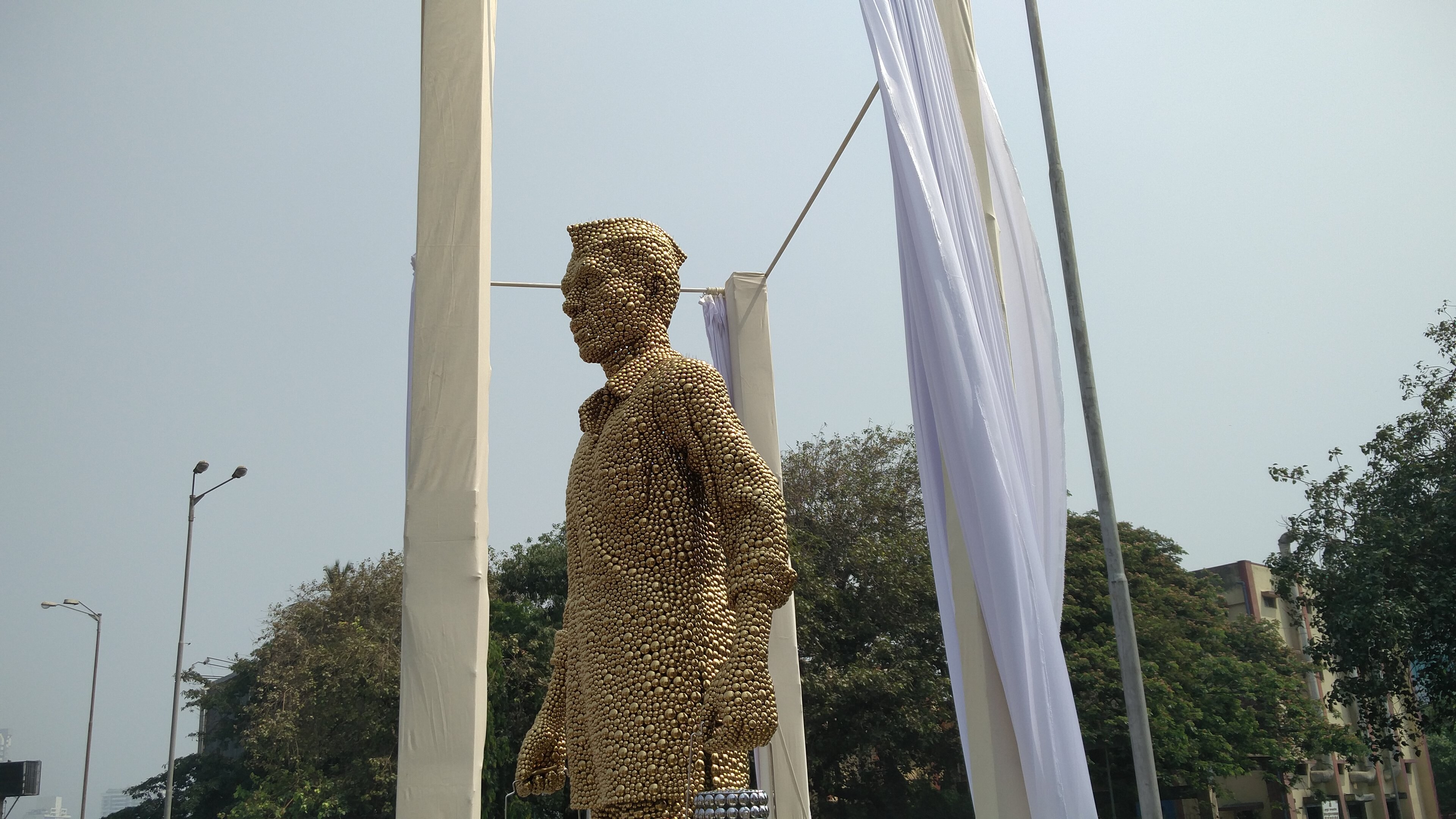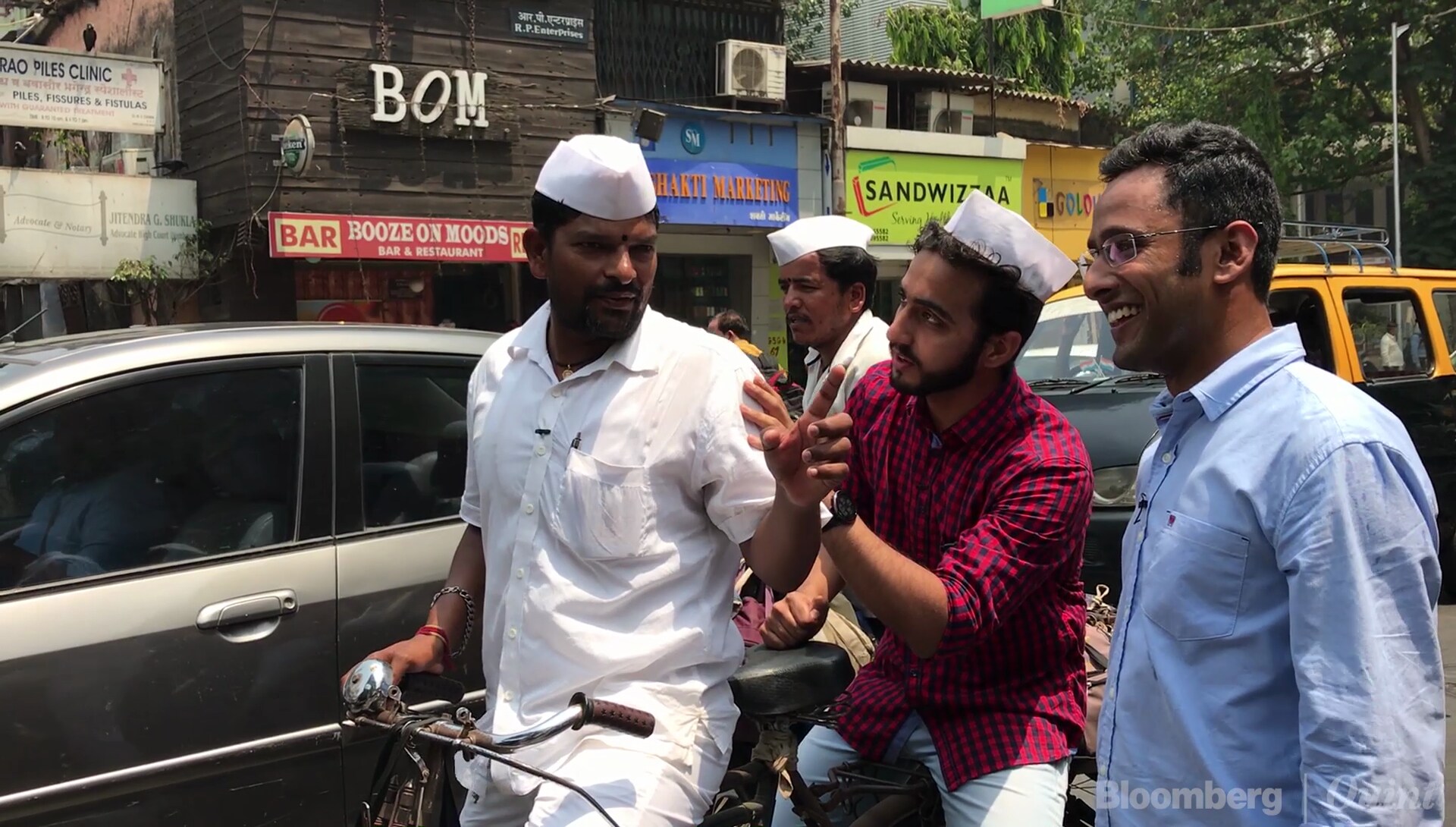
On Friday, a glittering statue was unveiled at one of South Mumbai's busiest junctions. This is no ordinary statue. The massive artwork is a tribute to Mumbai's famous “dabbawalas” – the tiffin delivery men who are known the world over for their clockwork efficiency.
In fact, Mumbai's network of nearly 5,000 dabbawalas have become synonymous with efficiency, precision and coherence. They deliver nearly 2,00,000 lunch boxes a day. “Out of 16 million deliveries, we make only one error. We are 99.99 percent, when it comes to efficiency,” the general secretary of the Mumbai Dabbawala Association, Subhas Talekar points out.
Such statistics have earned them heaps of praise and visits from the likes of Prince Charles, Richard Branson and even employees of leading logistics company FedEx. In 2010, the Harvard Business School published a paper, “On Time Delivery, Every Time”, attempting to uncover how 5,000 semi-literate dabbawalas cater to one of the world's most densely populous cities with nearly six sigma efficiency, and without using any modern technology.

The city's latest tribute to this ubiquitous group is one more feather in their cap.
“We are delighted,” said Ramdas, a dabbawallah as we followed him around for a day, trying to understand how the network functions. Ramdas wakes up at 6 am, exercises, eats a breakfast high on carbohydrates and then sets off to work by 8 am, where he and his colleagues pick up lunch boxes from customers all over the city. Groups of dabbawalas arrive at different points in the city, where the boxes are sorted according to a unique numbering system. Each of them is assigned a set number of lunch boxes to deliver.
“We generally leave from Lower Parel station on our cycles to deliver dabbas between 1145 am and 1200 pm. We then have to deliver our parcels by 1:00 pm. After that we stop for lunch and then go pick up the empty dabbas,” Ramdas adds.
While speaking to us, he shouts out to his crew to hurry up as they cannot afford to be late in delivering even a single lunch box.
Whilst they use Mumbai's local trains for efficiency, each dabbawala keeps two cycles – one to collect lunch boxes and the other for delivery. Although modern delivery services use scooters and motorcycles, Mumbai's dabbawalas prefer to keep it old school.
“We prefer using our bicycles as we can avoid traffic jams by lifting our cycles and running to our destinations with them instead,” says Kashinath, Ramdas' nephew, who is also a dabbawala.
Ramdas, like most of his brethren, follows a very strict regimen. He stays away from alcohol, cigarettes, and meat. His meals during the day consist mainly of vegetables and chapatis, or Indian flatbread. He avoids rice on weekdays, because that tends to make him sleepy, and that's a taboo when he strives for nearly perfect efficiency with his deliveries.

It's a tough life. To serve a city that never sleeps and is famed for its nightlife, Ramdas needs to be up and running by the time most Mumbaikars are getting home from a late night at work or at play. He sleeps at 9 pm on all days of the week except Saturday, when he stays up till 11 or 12 and gets to spend some quality time with his family.
The network of dabbawalas function like small businesses. The revenue generated by a group of dabbawalas is split evenly among its members. The size of the group depends on the area that it caters to and can have as many as 50 members.
Ramdas and his crew have another motto that seems to hold them in good stead at all times, be it bad weather on Mumbai's streets or in the global economy. According to him, it's all about heading to work each day with a purpose. And his purpose is to ensure that his customers don't go hungry for even a day. He says, “Even if the elevator isn't working in a 20 storey building, we will use the stairs to deliver the lunch box on time so that the customer gets what was cooked for him. Our customer is our god.”
Essential Business Intelligence, Continuous LIVE TV, Sharp Market Insights, Practical Personal Finance Advice and Latest Stories — On NDTV Profit.























